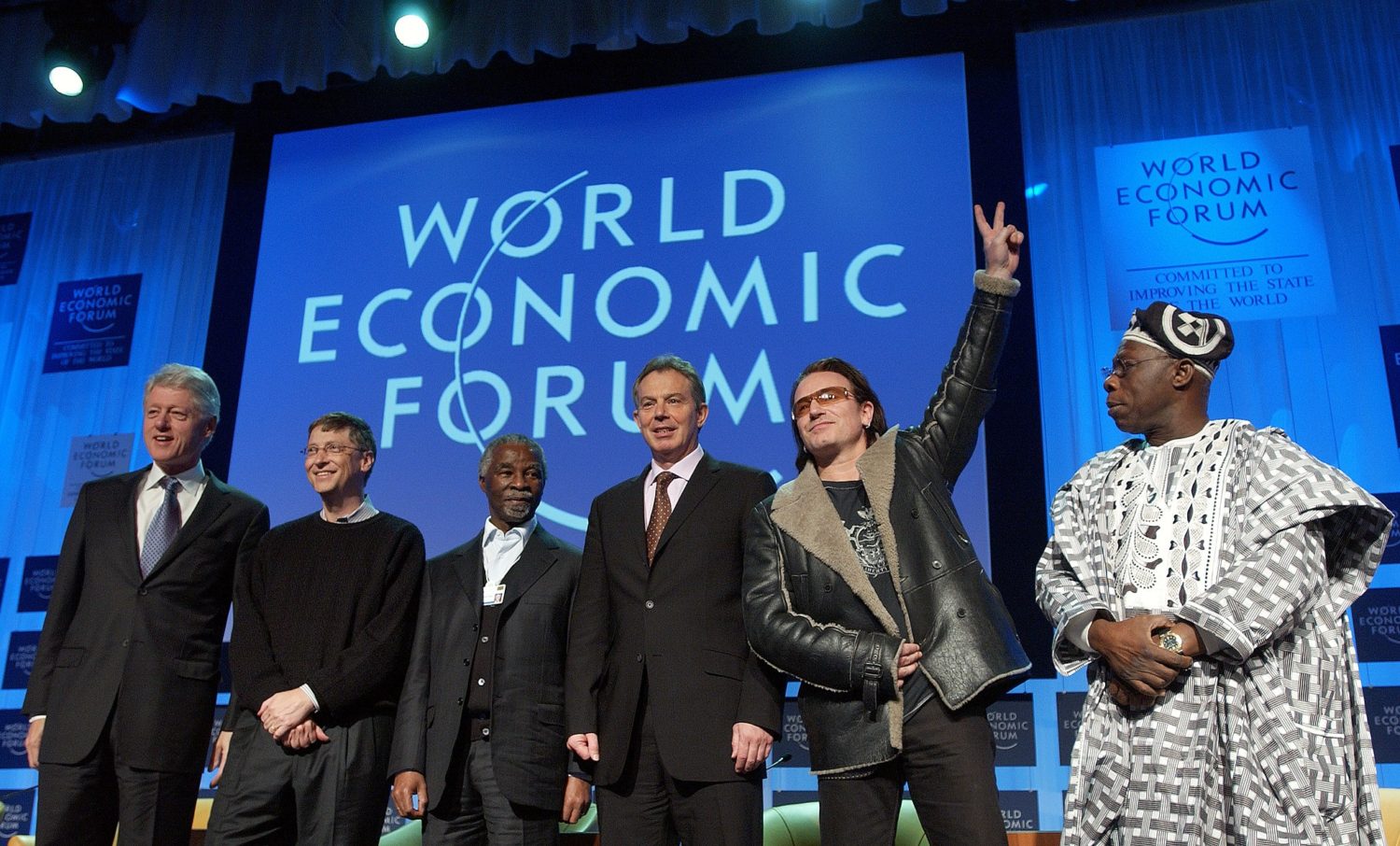Why Starmer Can’t be Blair
Times have changed since Blair left office – and with them, the economic consensus, writes Ciaran Driver
Writing last year in the Spanish newspaper El País, historian Paul Preston worried that the Labour party was at risk of emulating the mistakes of the Spanish left in the 1930s. He compared the politician and trade unionist Largo Caballero, who resisted participation in the Popular Front government before the Franco coup of 1936, to those in Labour who are dismissive of the Starmer leadership. Confronted with such warnings, the divisions of the British left are indeed worrying.
They are also needless. Whatever the left may fear, the economic consensus has shifted so dramatically since 2008 that Starmer cannot be another Blair. Like New Labour, Starmer is careful to position himself firmly within the boundaries of mainstream economic thought; but in the post-financial crisis world, this will almost inevitably place him to the left of the Blair and Brown governments.
Of the many victories that supporters attribute to the Blair years, most of the enduring ones are political, including Northern Ireland. Economic policy gains were mainly to do with attempts at redistribution and welfare reform, an impetus that carried on and was strengthened in the Brown years. Many of the distributional gains – or allocation of resources with distributional consequences – were genuine, humane and important. However, they proved relatively easy to reverse and only some, such as the minimum wage, have survived in any recognisable form.
Distributional gains were easily reversible because they were not embedded in a transformed economy. To a large extent this is because the Blair and Brown administrations were not open to challenging the dominance of market solutions and were wary of industrial planning, with the result that private investment lacked the coordination it needed to grow. It is not even clear that social expenditure was, as some have argued, contemporaneously funded by higher GDP growth. That claim is only be true to the extent that the pre-2008 boom was based on genuine output rather than fictional profits declared by early booking of unsustainable income streams: the finance industry but also some business services are prime examples of the latter.
While it is important to recognize both the successes and the limitations of the Blair-Brown period, the charge that Starmer is planning plough the same field represents a misunderstanding of the context he will find himself in. Events since the global crisis of 2007–8 have clarified for all with eyes to see the problems which accompany overreliance on markets and excessive reverence for shareholder capitalism. Even institutions like the IMF – and certain wings of the Conservative party – have felt the need to moderate their laissez-faire rhetoric. The recent debacle of the Truss mini-budget is proof that even financial markets do not believe that trickle-down economics is the right remedy.
So while the economic policy framework that prevailed during the Blair-Brown years was, in essence, rooted in the same monetarist paradigm first realised by Thatcher and Reagan, constraining the kinds of changes Blair and Brown could make whilst remaining on the right side of mainstream economic opinion, Starmer will enter government in a very different context. In at least four crucial areas, policymakers, economists, and institutions have now moved on from the neoclassical paradigm.
- The macroeconomy
It is hard to exaggerate the rethinking that has taken place in respect of economic orthodoxy. The scale of state intervention via monetary policy after 2008, and via fiscal policy during the pandemic, represents momentous concessions, even though much of this activity could have been far better directed.
Furthermore, there are now genuinely competing perspectives on state regulation of the economy. Martin Wolf of the Financial Times identifies the 2008 crisis as marking “the end of the dominant consensus in favour of economic and financial liberalisation”. Economists now accept that there are many more state instruments at their disposal, and that an exclusive concern with inflation targeting proved a misreading of what constituted the fundamental issues. While there remain serious disagreements over redistributive taxation, the size and funding of public sector debt and the metrics by which to measure it, there is no longer a single orthodoxy.
- Markets vs planning
There has been much movement away from the idea that markets can be counted on to deliver supply under “responsible” demand management. That was a central tenet of the Blair administration, only briefly challenged by Vicky Pryce and Frances Cairncross, resulting in the UK being labelled in 2004 “one of the most market friendly economies in the world”. As recounted by John Denham, who was given ministerial roles by both Blair and Brown, a precept of government thought throughout this period was that globalization was “a benign and challenging opportunity” that required “a pro-business stance, lax regulation, flexible labour markets”. Now, there is renewed interest in industrial strategy amongst policymakers and officials of all stripes. More importantly, business itself is open to the suggestion that markets need institutional support. Consider this from the Lex column of the Financial Times: “Private capital allocates itself efficiently in markets that are well-defined. It cannot bear the heavy lifting required of it when the task ahead is so vague.” In reality, markets have always been made and policed by states, but by acknowledging this fact, the economic policy establishment has moved the default option away from free-market absolutism towards greater state intervention.
- Capital and broad investment
From the 1980s, British macroeconomics became dominated by the theory that economic performance began and ended with the labour market. The basic idea has a left pedigree: capitalism keeps going because the state creates enough unemployment to keep wages in check. British economists in the 1980s therefore suggested increasing the supply of available labour by, among other things, drastically curtailing the power of trade unions. Highly influential, this emphasis on labour market flexibility displaced any serious focus on investment and productivity growth. But who really believes in it now? Why are politicians of both left and right now trumpeting the need for capital investment and productivity improvements rather than emphasizing the need for flexible labour markets? Surely the answer is that a single-minded emphasis on labour flexibility led to the low-skill low-wage economy that all shades of political opinion now complain about. As the Conservative party met in conference on 5th October 2021, Tony Danker, CBI director-general, told BBC Radio 4’s Today programme that “if wages go up that’s a good thing, and it forces businesses to think about capital and investment.” The economics of the Blair years were on the wrong track, and they will not be coming back in a hurry.
- Stakeholder voice
Blair distanced himself from the unions and failed to champion a reform of labour-capital relations or corporate governance that would have addressed the questions of underinvestment and short-termism in British business. His early use of the term ‘stakeholder capitalism’ in 1996 was far removed from the concept that had been developed by the writer Will Hutton, which forcefully challenged the control of company boards by shareholder interests alone. In a speech just before his first term, Blair spoke of industrial relations but only promised a minimum wage and “a right for any individual to join a trade union”. Beyond that, his vision was for everyone in industry being “on same side … in the same team.” Discussions of stakeholder capitalism today are far more advanced. Various bodies, including the CBI, the Bank of England, and even the Institute of Directors have indicated that they are open to stakeholder initiatives. Interesting pro-stakeholding reforms, including changing hard and soft corporate law, reform of the takeover code, stakeholder representation, works councils, for-purpose companies and increased information sharing have all been explored in greater detail. In the context of that public discourse, it is interesting to contrast Blair’s timidity to the tough but reasoned appeal for a new kind of partnership between business, government and labour by shadow minister Stephen Kinnock: “Companies do not operate in a vacuum … in too many cases they have become organisations that exist only to generate short-term profits for their shareholders and exorbitant pay packages for their CEOs. It is time for transformational thinking around the role of business in society, so that business, government and trade unions can become partners for a new kind of growth.”
We can see, then, that the economic policy environment has changed dramatically since the Blair years. But a left-wing government is not there simply to execute the demands of the current political context. There are still choices to be made and Starmer must choose to seize the opportunity he has been given.
Despite the accompanying risks, Starmer should be preparing to press forward with policies to achieve the “irreversible transfer of wealth and power” that has been echoed by Labour leaders for half a century. By laying claim to the spirit of the times, he can win the support of both left-wing political allies and many on the centre who now embrace the new mainstream realism.

